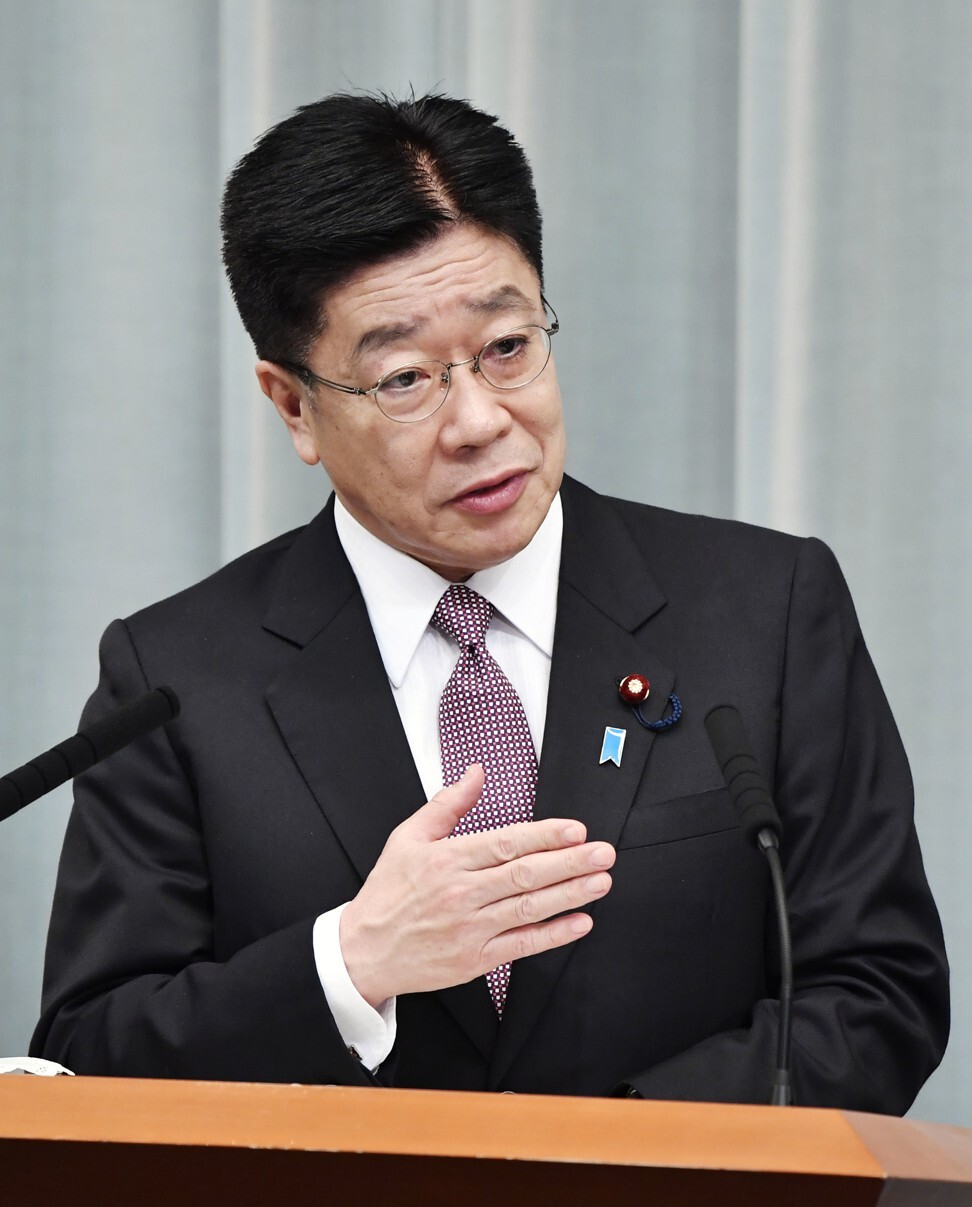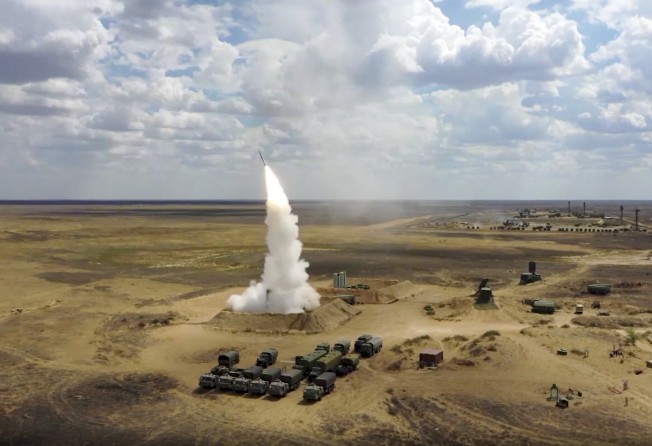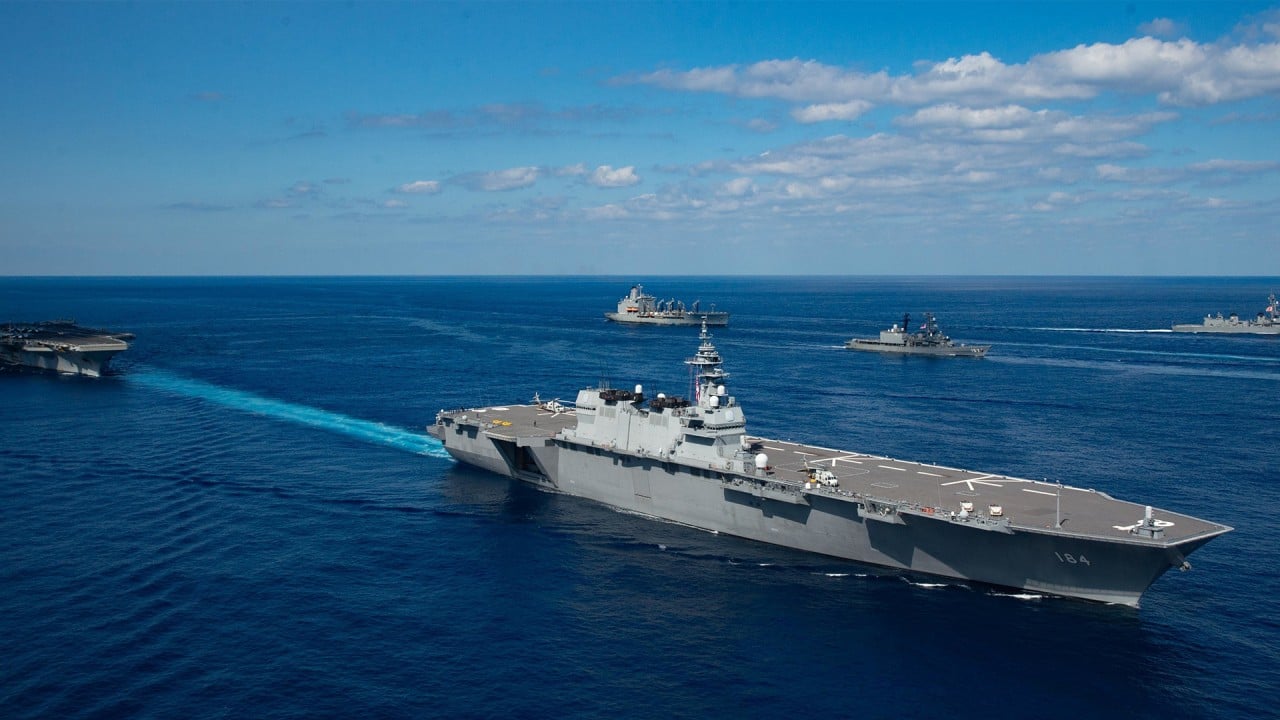
Japan cries foul as Russia moves missiles into Kuril Islands
- Tokyo files protest with Moscow after it deploys battery of air-defence missiles on islands off Hokkaido
- The escalation in military tensions comes as Japan is already involved in bitter sovereignty disputes with China and South Korea

Tokyo has filed an official protest with Moscow through diplomatic channels after the Russian military deployed a battery of advanced air-defence missiles on one of the four islands off northern Hokkaido that Soviet forces seized in the closing days of World War II, and which Japan still claims as its territory.
The battery of S-300V4 missiles was deployed on Iturup, one of the Southern Kuril archipelago. Japan refers to the island as Etorofu, part of the Northern Territories.
Russian television has broadcast images of exercises using the weapons system, which is designed to target enemy aircraft and inbound missiles, since it was installed. The missiles have an effective range of 400km.
Russia has also deployed advanced fighter jets on the islands, along with anti-shipping missiles.
“The deployment contributes to the Russian military build-up on the Northern Territories and conflicts with our country’s position that the islands are our inherent territory,” Chief Cabinet Secretary Katsunobu Kato said at a press conference in Tokyo on Wednesday.
The escalation of military tensions at the most northerly point of the Japanese archipelago is an unwelcome complication for the administration of Prime Minister Yoshihide Suga. As well as the disagreement with Russia over territory, Japan is at odds with South Korea over the sovereignty of Dok-do, which Tokyo refers to as Takeshima, and both Beijing and Taipei over ownership of the Senkakus, known as the Diaoyu Islands to China.
There were some very significant differences between the three different disputes, said Toshimitsu Shigemura, a professor of international relations at Waseda University in Tokyo.

“The timing of this latest flare-up with Russia is unfortunate because it comes when tensions are still running very high around the Senkakus,” he told This Week in Asia.
Japan has been concentrating a lot of its military monitoring and information-gathering efforts to the far southwest of the nation and more may now have to be directed to track the movements of Russian forces, he said.
“But these are very different situations because Japan is not presently exerting control over the Northern Territories or Takeshima, so Tokyo’s efforts there are limited to diplomatic campaigns,” he said. “So right now, the Senkakus are Japan’s priority as they are internationally recognised as our territory but China is stepping up its attempts to claim them.”
More than 75 years after Japan’s surrender marked the end of the war with Russia, Shigemura is not optimistic Suga will be able to convince his Russian counterpart, Vladimir Putin, to return them to Japanese control.
I do not think that Japanese diplomats realise that right now, it is impossible to return those islands to our control
“Former Prime Minister [Shinzo] Abe met Putin several times to discuss the future of the islands and a number of proposals for their return were put to the Russian side, but he always fell short,” he said.
“I do not think that Japanese diplomats realise that right now, it is impossible to return those islands to our control,” he added. “There were chances when Boris Yeltsin was the Russian leader, but Japan pushed too hard to get all four islands back and he was not willing to go that far.
“Russia was close to returning two of the islands, but that opportunity has gone and Putin is not willing to seriously consider the idea now,” he said. That is partly due to wavering support at home, he suggested, while returning territory that was won in battle from the Japanese would be deeply unpopular with the Russian public.
The dispute over the sovereignty of the islands has meant that the two sides have not yet signed a peace treaty that would formally and finally draw a line under World War II.

02:14
Japan-US hold joint military drills including cyberwarfare training as concerns about China grow
Ivan Tselichtchev, a professor at Niigata University of Management, said Russia’s positioning of missiles on the disputed territory could be considered a message to Tokyo.
“The Russian side is taking actions that it considers to be appropriate for the defence and economic development of the islands,” he said. “The message is that these decisions are what is in the best interests of the islands, and other parties should not try to get involved in the decision-making process.”
Before becoming prime minister, Suga was primarily focused on domestic Japanese issues, Tselichtchev said, and had limited experience of diplomacy or negotiating with foreign leaders.
“Abe had a relationship with Putin, they met several times and they discussed the islands,” he said. “Suga does not have that relationship and it will take time to develop, if he decides to go ahead and build the relationship. But Russia has stated that it is willing to discuss the signing of a peace treaty and the future of the islands, so that has been quite clear.”
Yet he concurs that there is little appetite for the territory to simply be handed over to Japanese control.
“Russian people and the residents of Sakhalin are in favour of the status quo and that the islands should remain Russian,” he said.
And while the Northern Isles will be yet another issue for Suga to address, Tselichtchev said it was unlikely that it would distract him from the biggest threat to Japan’s security.
“The rising tensions around the Senkaku Islands make that a much higher priority for Japan,” he said. “The activities of the Chinese military and coastguard in Japanese territorial waters around those islands are going to be taking up most of Suga’s time, and I do not think that is going to change greatly in the near future.”